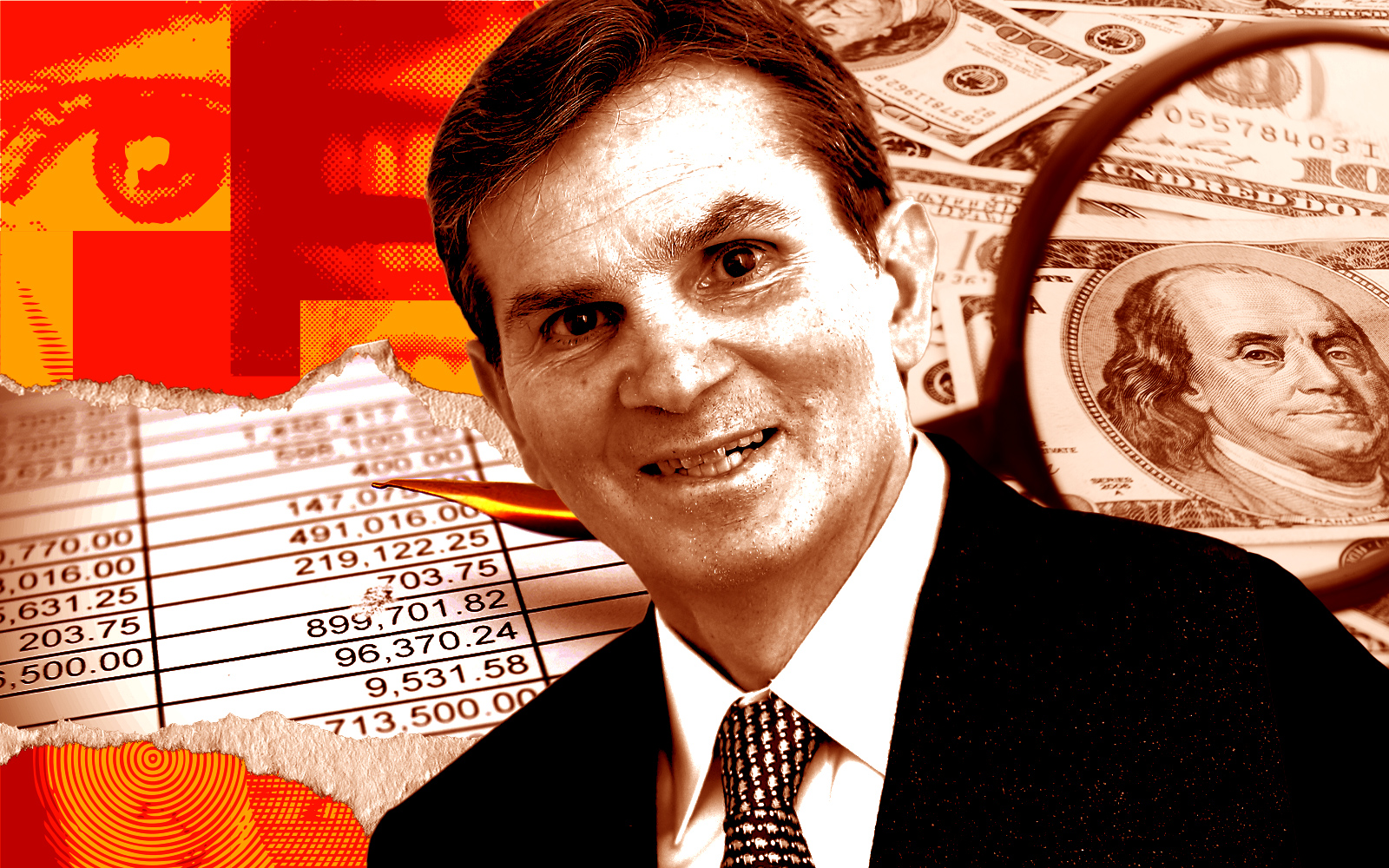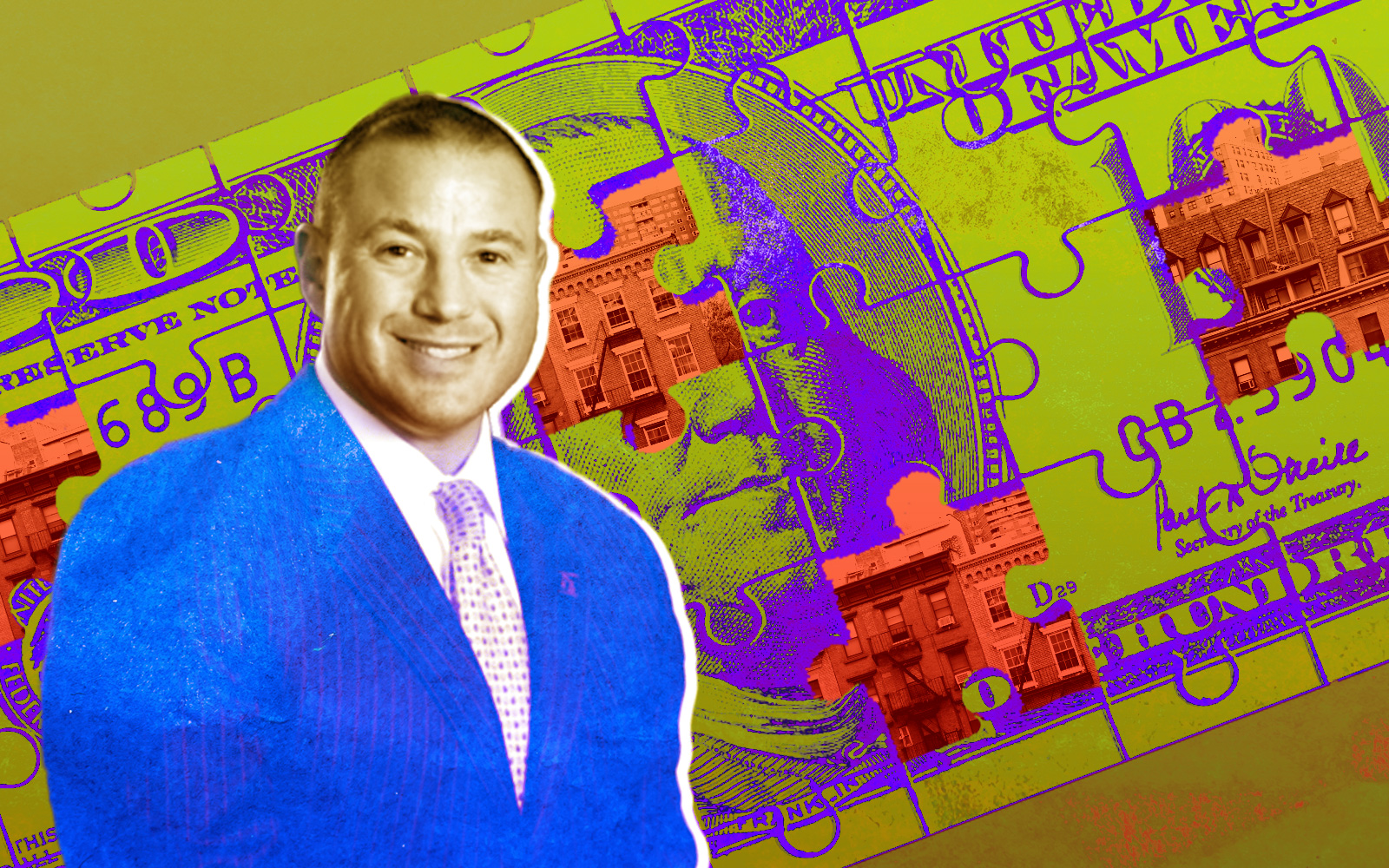Updated April 7, 2023, 6:30 p.m.:
New York Community Bank’s decision to pass on buying Signature Bank’s commercial real estate loans set off alarm bells in the multifamily sector and left the city’s landlords in financial limbo.
Industry insiders laid the blame on the rent-regulated buildings backing most of that debt. Of the $19.5 billion in multifamily loans Signature had on its books, $11 billion was on rent-stabilized buildings, which have seen valuations plummet after changes to the state rent laws in 2019 made rent increases far more difficult.
“[NYCB] didn’t buy their New York City multifamily loans because they knew they were shit,” said Joe Tahl of Manhattan-based landlord Tahl Properties.
Jennifer Recine, who co-chairs the real estate practice at Kasowitz Benson Torres, said NYCB’s decision suggested that the bank “believes the demand for the underlying collateral … may be collapsing.”
So when the Federal Deposit Insurance Corp. tapped Newmark last month to sell Signature’s real estate loans to someone else, it naturally prompted questions: How bad are these loans? Who would want them? And how might a sale impact the rent-stabilized market?
The Real Deal checked in with investors, attorneys and workout experts. Here’s what we’ve learned:
How bad is bad?
Though the rent law hobbled Signature’s rent-stabilized loan book, regional banks’ lending practices before 2019 may have laid the foundation for its collapse.
In 2018, the state’s Department of Financial Services raised concerns about allegations that regional banks had knowingly issued high-leverage loans to bad actors on a bet that these landlords could force stabilized tenants out and deregulate their units.
Signature wasn’t called out directly, but the bank had been tied to notorious players such as Raphael Toledano, who faced multiple accusations of tenant harassment and was eventually given a five-year ban from engaging in any New York real estate business by state Attorney General Letitia James.
Signature had backed a $124 million loan issued to Toledano by Madison Realty Capital. The loan-to-value ratio of 128 percent signaled that lenders expected Toledano to be able to dramatically increase the income from the portfolio, likely through deregulation.
The bank’s then-CEO, Joseph DePaolo, denied that Signature was knowingly financing tenant harassment, saying in 2017 that its loans were “always based on current cash flow.”
Within months of DFS’ 2018 memo, however, Signature made a public pledge to be more responsible in its underwriting.
In a tweet this week, landlord advocate Jay Martin of the Community Housing Improvement Program called the idea that Signature lent on a deregulation model “fundamentally false,” and said its loan book lacked suitors solely because of the 2019 rent law.
But attorneys say those loans did sit on the bank’s books, and that aggressive landlords were the first to feel the pain when the rent laws changed.
“The music stopped and the market was already seeing who was left without a chair,” said Kenneth Fisher, an attorney at Cozen O’Connor. “[Those] buildings were overpriced on a mark-to-market basis.”
In blocking most routes to hike rents on stabilized units, the changes to rent laws drove down values by up to 65 percent, according to an analysis by Maverick Real Estate Partners, a distressed-debt player in the space.
“[Rent-stabilized] properties have come down as high as 50 percent,” said Lev Mavashev, principal at investment sales brokerage Alpha Realty. “So many are definitely underwater now.”
Only 4 percent of Signature’s multifamily book is currently distressed, according to an analysis by the University Neighborhood Housing Program, a nonprofit that says it’s been monitoring the portfolio “for years.”
But owners often take money from cash-flowing buildings and invest it into some of their more troubled assets. Data gathered by the city’s Rent Guidelines Board, which sets limits on rent increases at stabilized properties, show that in 2021, owners saw their net operating income drop to $576 per unit, a record 9.1 percent annual decline from 2020.
Once owners attempt to refinance, today’s far higher interest rates could put a chunk of properties into delinquency and default. Moreover, the buyer pool for such assets is shallow.
“I can’t sell a lot of the buildings that I’m asked to sell,” Mavashev said, “because you know the market value or the value they would trade at right now is below their debt.”
Who’s buying, anyway?
New York Community Bank was thought to be an ideal buyer for Signature’s loan book. It’s already the top lender in the rent-stabilized space and works with a lot of the same clients.
A spokesperson for NYCB said its decision to turn down Signature’s multifamily loans was rooted in the fact that it is already the top lender to rent-stabilized landlords in the city.
“Taking on Signature’s entire portfolio would have resulted in NYCB being overly concentrated in this lending vertical,” the spokesperson said. “[The] decision to not bid on Signature’s multifamily/CRE portfolio had nothing to do with credit quality.”
Insiders doubt an institutional player will step into the mix.
“They also don’t want to have such toxic loans on their books,” said Mavashev, speculating that the loans would instead be purchased by multiple private lenders, such as debt funds or “one of these cowboy private equity firms.”
“I think it’s definitely going to be private markets,” said Wesley Carpenter, co-founder of alternative lender Stormfield Capital, pointing to hedge funds or private credit. “This is going to be yet another step function of the private markets: picking up the slack for what the regional banks haven’t been able to serve.”
Reset
What’s clear to the industry is that the loan book will be sold on the cheap.
The $12.9 billion in Signature loans that NYCB did pick up sold for a $2.7 billion discount.
“There’s going to be a large percentage of defaults,” said Carpenter of the rent-stabilized portfolio. “That is going to manifest itself in the purchase price.”
Insiders say a sale could have implications across the city.
“It’s going to force other regional banks to mark loans to value,” Mavashev said.
What’s yet to be seen is how low bidders will go — or what the FDIC will accept.
Some optimists predict the loans will sell for 80 to 90 cents on the dollar. That could benefit the borrowers, giving their lender the leeway to work things out. If a hedge fund buys the loans at 80 cents, it could offer distressed borrowers a plan to repay the loan at 90 cents.
“[The sale] may actually be the step down in basis New York’s real estate market, particularly the rent-controlled and rent-stabilized assets, really need,” said Carpenter.
But if the loans sell to a private equity fund seeking fatter returns, that firm may buy the debt for cheap, limit the restructuring options and collect on default interest or a foreclosure.
The Uncle Sam question
Another complication for borrowers staring down distress may be government oversight.
On April 3, U.S. Rep. Ritchie Torres, whose district covers much of the Bronx, called on the FDIC to consult with city and state housing officials on the sale of Signature’s loans.
“It remains unclear who might end up purchasing this portfolio and whether the buyer will be committed to prioritizing the needs of residents and maintaining affordable housing,” Torres wrote.
The same day, the FDIC said it would seek input from state and local governments, given its “statutory obligation” to preserve affordable housing.
“FDIC is giving [the Department of Housing Preservation and Development] a chance to review the loans before they are sold to identify potential distress,” said Rachel Fee, executive director of affordable housing group New York Housing Conference, who said the move may “ensure loans for at-risk buildings land in responsible hands.”
That may prevent the debt from being scooped up by a buyer intent on foreclosing. But for property owners already wary of the regulatory environment, additional oversight could mean prioritizing tenants’ needs over their own.
“It probably helps that FDIC Chair [Martin] Gruenberg grew up in an apartment building in the Bronx,” Fee added. “He understands what’s at stake.”
Correction: An earlier version of this story indicated that NYCB bought $12.9 billion in Signature loans for $2.7 billion. Contrary to published reports, NYCB actually bought the loans for a $2.7 billion discount, according to the FDIC.
Read more



